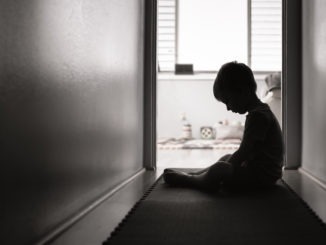
An NAHT poll finds that almost half of headteachers plan to leave prematurely – and 70% say job satisfaction has fallen in the past year
CREDIT: This is an edited version of an article that originally appeared on The Guardian
Schools in England are facing an exodus of headteachers, with almost half considering leaving the profession after the pandemic, according to a new survey. Headteachers interviewed by The Guardian said they were stressed and exhausted because of the enormous pressures of dealing with COVID. They were also worried about school budgets, which were already tight, but have been substantially eroded by additional coronavirus costs.
Almost half (47%) of those who took part in a poll by the National Association of Head Teachers (NAHT) said they were likely to leave their jobs prematurely, once they had steered their schools through the COVID crisis; many had already become disillusioned with education before the pandemic. More than two-thirds (70%) said they were less – or much less – satisfied in their roles than this time last year. They were also concerned about plans by Ofsted to resume school inspections from January, with 90% of headteachers opposed to the proposals.
The survey was published as the union called for a ‘revolution’ in professional development for teachers and leaders, which would help unlock pupil potential as the catch-up programme began. The NAHT said enhanced support was needed for school professionals working in the most deprived communities, which have been among the hardest hit by the pandemic. “School leaders have shown exceptional determination, courage and optimism in leading their teams to support pupils through these extremely difficult times,” said Nick Brook, NAHT’s deputy general secretary. “It is, therefore, deeply concerning that many school leaders are considering leaving the profession prematurely, once they have guided their schools through this crisis.”
Sarah Hewitt-Clarkson, head teacher of Anderton Park primary school in Sparkhill, Birmingham, is not surprised at the survey outcomes. “I’m not thinking of leaving, but I know plenty of friends and colleagues who are,” she said. Many headteachers were exhausted after demanding days and sleepless nights, she added; they were worried about their budgets, keeping staff and children safe from coronavirus, and finding cover for teachers off sick or self-isolating. “Some schools have spent their whole year’s budget on supply, and don’t know if they will get that money back.”
“It’s a huge pressure,” she continued. “The stress was absolutely enormous in the summer term when we were getting everybody back.” She said there was frustration and anger over problems securing free school meals for families with no food in their cupboards. “Now I feel it’s shifted. Now we have more cases among families in the community. The reality that this is a pandemic; this very serious illness is kicking in, and really affecting people’s anxiety.” A couple of families were so worried they had decided to home-school their children, she said.
Sarah Hewitt-Clarkson said school leaders were exhausted. “It’s like being on a knife-edge the whole time.” A school day could be going well then a ‘phone call could change everything, with positive cases and isolation to organise. Sleeplessness was a widespread problem, she said. “I either don’t sleep, or I have the most horrific dreams.”
Meanwhile, another headteacher, Jim Nicholson, of Mellor primary school in Stockport, said he loved his job, but the demands and the weight of responsibility were huge. He said colleagues had “moved mountains” to make schools work safely but the pressures were relentless, with the school day ending at 8.30pm followed by calls in the evening, at the weekend and during the holidays. He said colleagues had ‘phoned him in tears.
“It’s in the back of your head all of the time,” he said. “Physically I’m exceptionally tired. I get to Friday and I’m absolutely goosed.” Others were worried about the impact on their family life. “They’re beginning to think, can I sustain this? School first and family later? It should not be that way.”
Nick Brook, publishing the NAHT’s school improvement commission report, added, “When we emerge from the pandemic there can be no sense of merely flicking a switch and returning to the way things were, with all the same fault lines. A post-COVID revolution is needed to prevent a post-COVID exodus of school leaders.”
A Department for Education spokesperson said, “We are improving support and professional development for teachers at all stages of their career, and have committed to providing tailored support for new headteachers who are at their least experienced, and at most risk of leaving the profession, via our National Professional Qualification for Headship.”




Be the first to comment